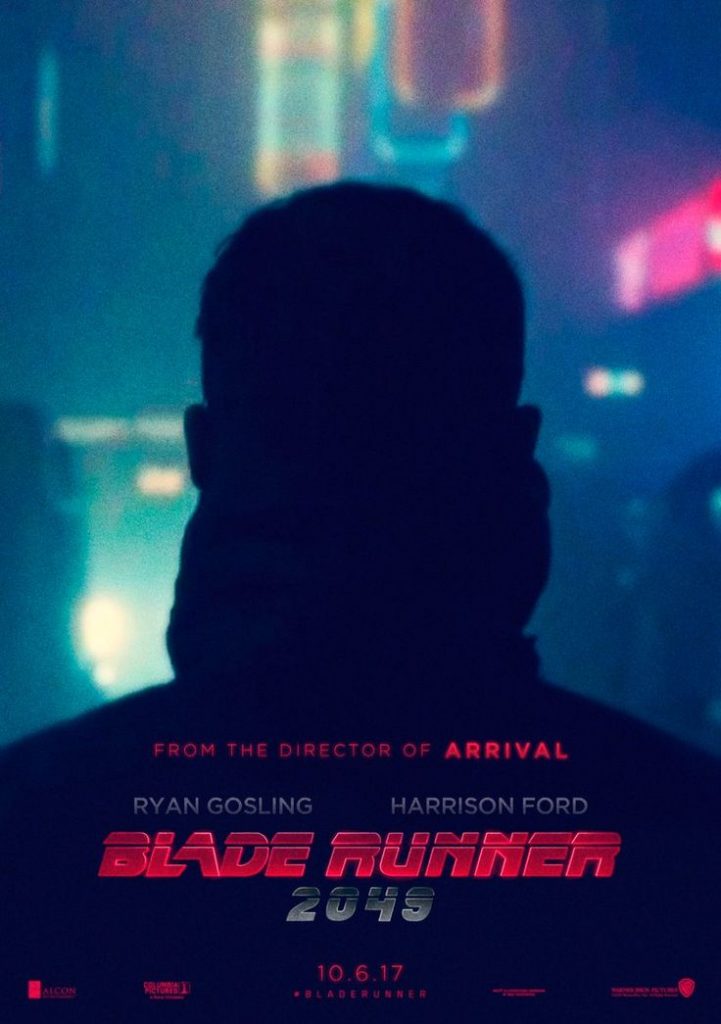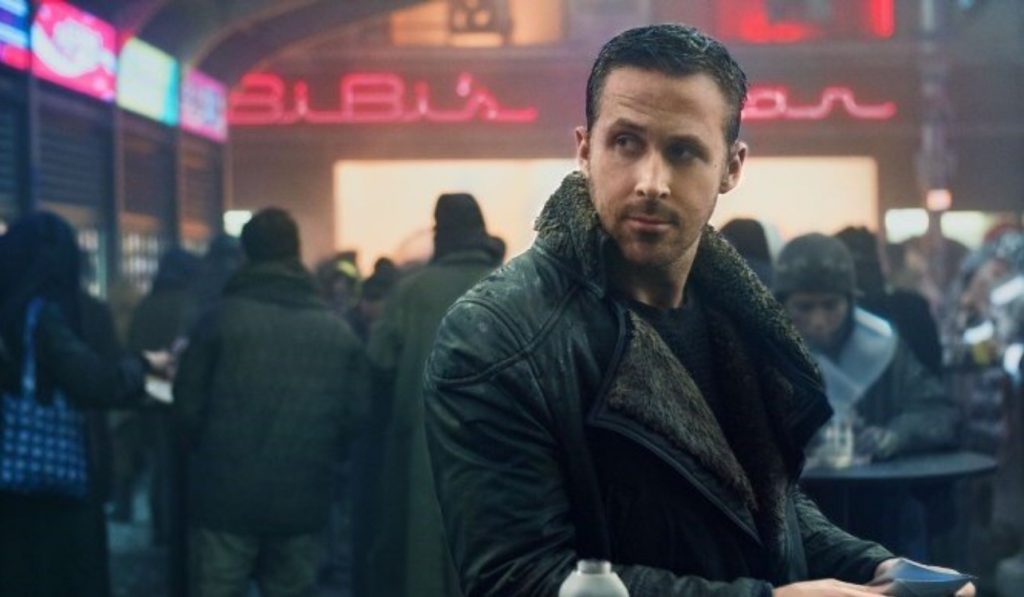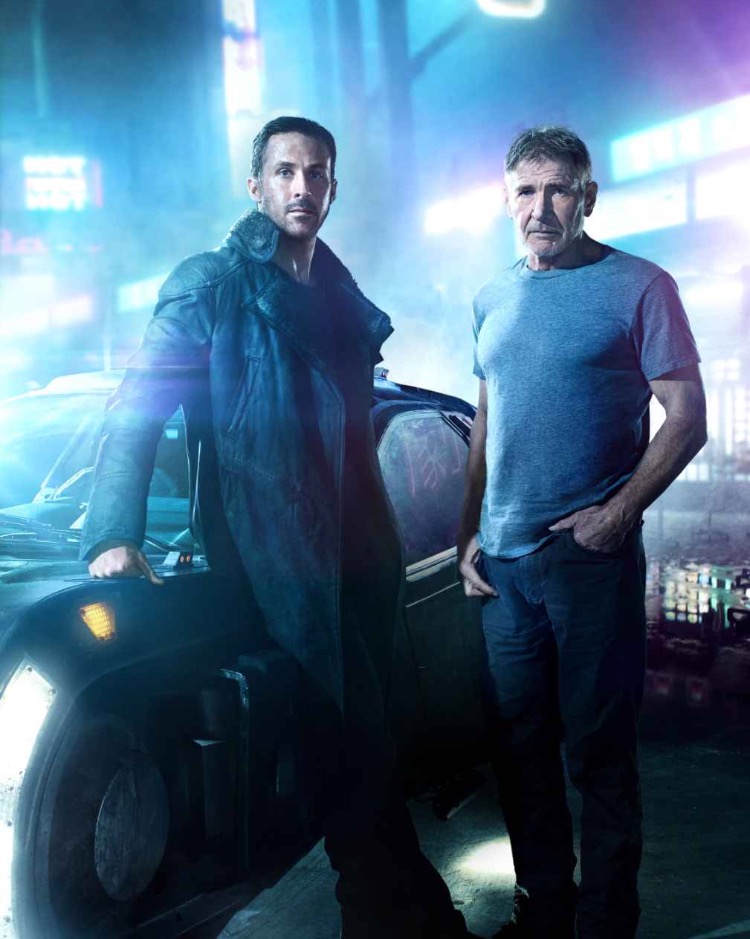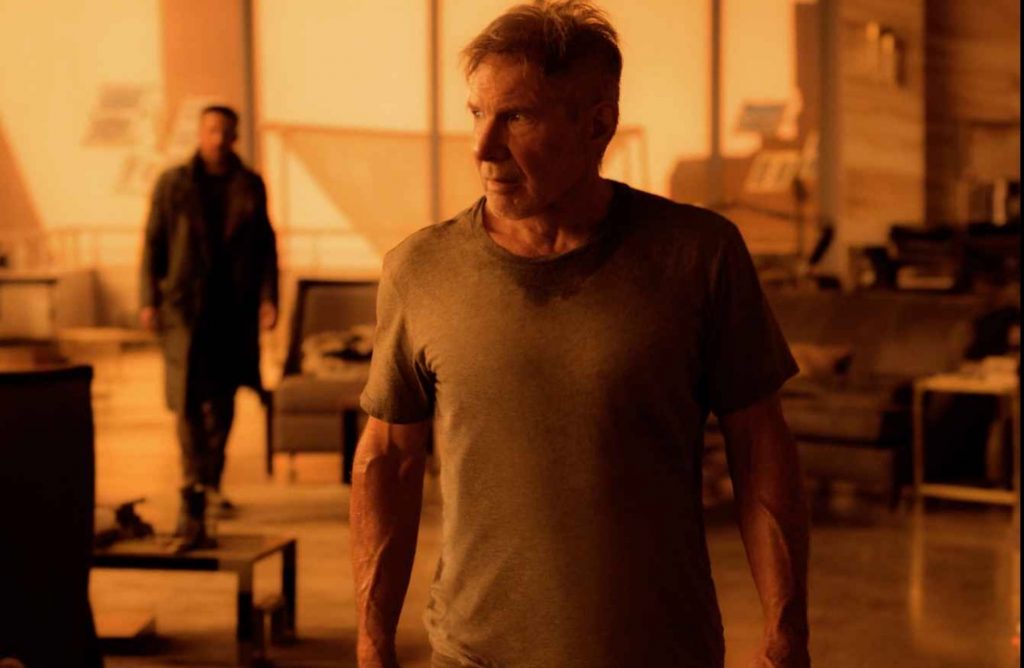
Courage to take Ridley Scott’s project
Denis Villeneuve: I didn’t say yes spontaneously to that project. I remembered that during the shoot of “Prisoners” it was the first time I said, ‘I have to leave this meeting because I have a meeting with Ridley Scott in the next room right now and we can’t tell you what it’s about. Okay, it’s about Blade Runner.’
For me, the idea to make a sequel to “Blade Runner” was the most exciting, fantastic and maybe bad idea that I had heard in a long time. I remember thinking at the time, because it’s a universe that I loved so much, and thinking that Ridley was willing to go back to this universe. When the project happened to be in front of me, I was touched by the confidence and the trust that the studio had–they thought I could helm this. But I was pretty frightened, and very curious to read the screenplay, but when you have the screenplay in your hand, that was a very exciting moment.
But I didn’t say yes spontaneously, because there was a problem with time schedule and I was about to direct “Arrival” and I was not available right away. I always take my time to make sure that I would be able to make this universe my own.
It’s a strange process to take someone else’s universe and I didn’t want to feel like a graffiti artist in a church. I didn’t want to feel that I would corrupt, or be a parasite in someone else’s universe. I had to find a way to take that universe and make it my own. Once I felt that, I became comfortable. But frankly it was not an easy decision to make.

Meaning of First Movie
DV: It’s a movie that was very important to me because it was linked with my passion for cinema. I saw it during my early teenage years, like 13 or 14 years old, as I was starting to dream to be a director. And at that time we were starving for good Sci-Fi, and I am a big Sci-Fi fan and there were a lot of B movies and movies that are sometimes like made for kids, and there was not a real, pure Sci-Fi movie, there aren’t a lot of them, good ones. When “Blade Runner” came out , it raised questions about humanity and the strong aesthetic and a new way of approaching Sci-Fi. It was something that Ridley did, something wasn’t done like this in the past, to blend genre and the film noir with Sci-Fi and it was very new for us, and it really blew our minds. I am saying we because I was with some friends and “Blade Runner” fan addicts at the time. It was the first time that I felt someone was creating a time capsule and was able to recreate what could really be our future, because of the way they are bringing it from an aesthetic point of view and it was like this beautiful idea that we were there at the time but we were seeing all of the layers of the past in the same movie and the past was still alive and there were all of those brands that were part of the reality. It was a really strong aesthetic work that really struck me.
Building the World: Noir Design
The movie is definitely faithful to the spirit of the first movie, especially in its noir aesthetic. It’s still an existential detective story evolving in that film noir aesthetic, with that strong atmosphere and that impressionist lighting.
We tried to respect it, because we loved it so much and the movie is an extension in a new exploration of that world. What I loved about the screenplay, there was a freedom to be faithful to the first movie, but also to evolve in a broader spectrum, because the story is taking place in Los Angeles, but also visits what is around it. This means that there was the possibility to expand a little bit this language. This visual language that Ridley created was great, but I also had the possibility to push the envelope a little bit.

Career Choices
After “Prisoners,” I had been offered a lot of tentpole, sci-fi, big huge movies, and I have always said no. Because I felt that I was not the director for it and I felt that I didn’t have the right responsibility to bring those projects to the screens and I felt also that sometimes that danger of, I didn’t want to be a director for hire, because I think there is tendency to hire young directors right now that don’t have the shoulders to take on those big projects. And I didn’t want to be the sacrificial lamb. And I said, if I ever cross that line, I want to be in total control and I want to be responsible. If the boat sinks, I sink with it as a Captain. And if you don’t like the movie, it’s my fault and not the studios.
DV: When I read the screenplay for “Blade Runner 2049” I felt that it was worth that risk, because of the power of the story, because of the love that I have for this universe. It’s a risky project and I have never taken a risk like that in my life, but I love it.

When I make movies, each movie is in some way or another a flirt with disaster, and thinking I will talk about the culture or the subject matter that is politically sensitive. “Blade Runner” was the most difficult because again, artistically I was taking someone else’s universe. So the sacred line for me was not what Ridley had shown, but what he hadn’t shown us. The discussion I had with him, this idea that for him, it was important to keep the mystery alive, which means about how we design Replicants and what the off-world looks like and all those things that are part of the subconscious and unconscious part of “Blade Runner.” There’s a lot of things in there and elements that we are not seeing. We are always seeing the universe, and we are just above Deckard’s shoulder in the first movie and there are a lot of elements that are evocative in a very poetic and powerful way that we don’t see. I respected that space for Ridley and for Ridley’s sake. Apart from that, I felt lucky having Ridley’s blessing.

Harrison Ford and Ryan Gosling
Denis Villeneuve: Harrison was there before me. The project started with Ridley and Anton Fincher having an idea about what could be the sequel and by the way, Ridley from the birth of “Blade Runner” and when he decided to make the movie, from what I understood, I hope I am saying things that are true right now because that is what I heard from Ridley was that he was dreaming to do a sequel.
“Blade Runner” was born at a time when there was the birth of “Star Wars” and “Indiana Jones” and the birth of sequels. The first movie was not a love cruise and there was a lot of tension and a lot of problems with the rights afterward, so the idea of sequels died early.
The first step was that once Ridley and Anton got this idea, I think they called Harrison right away. When I got on board, Harrison was already on board. He is part of the DNA of the project. And I was coming on board and Harrison was attached to the project already. In fact, I had to be approved by Harrison, and it was not the other way around.
I cannot tell you a lot about why I wanted Ryan Gosling for this part, but I will say that it was not my idea. It was Anton Fincher’s idea that thought about him right away as he was writing. So Ryan was part of the DNA of the project right from the start and he was part of the early dream and it’s an idea that came from Anton and Ridley.

When I read the screenplay, they said to me that they were thinking and there was no imposition, it was all my choice, but they said we are thinking about Ryan for this. And when I read the screenplay, I said yeah. There’s nobody else. It’s like for very specific reasons and it’s like you need Ryan Gosling.
I made the movie and Ryan never did a movie like that before on that scale for various reasons and he agreed to jump on board because, as I did, he fell in love with the screenplay and the idea and so bringing Harrison Ford and Ryan Gosling into the movie was the easiest thing for me. It was the easiest part.




